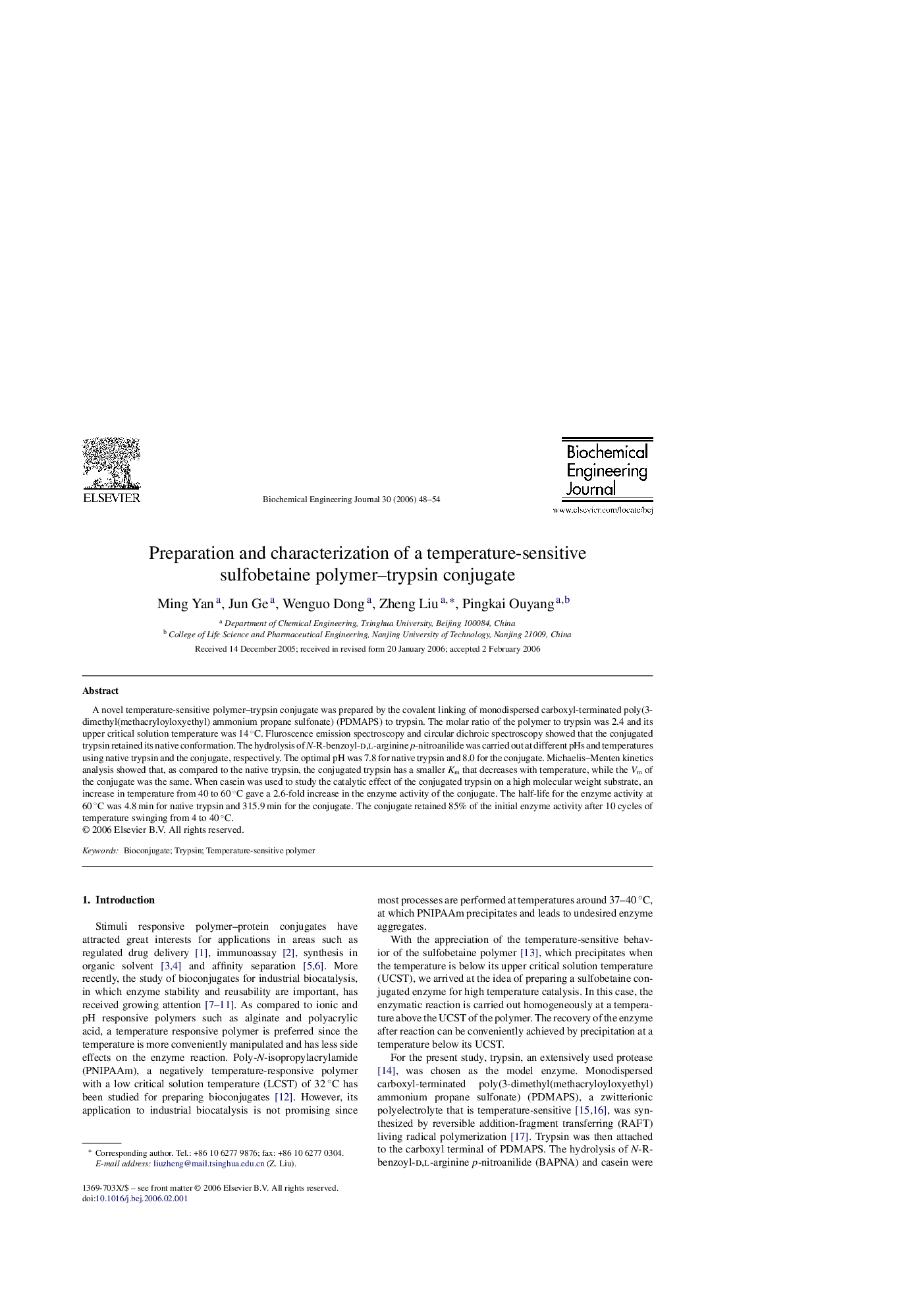| Article ID | Journal | Published Year | Pages | File Type |
|---|---|---|---|---|
| 4922 | Biochemical Engineering Journal | 2006 | 7 Pages |
A novel temperature-sensitive polymer–trypsin conjugate was prepared by the covalent linking of monodispersed carboxyl-terminated poly(3-dimethyl(methacryloyloxyethyl) ammonium propane sulfonate) (PDMAPS) to trypsin. The molar ratio of the polymer to trypsin was 2.4 and its upper critical solution temperature was 14 °C. Fluroscence emission spectroscopy and circular dichroic spectroscopy showed that the conjugated trypsin retained its native conformation. The hydrolysis of N-R-benzoyl-d,l-arginine p-nitroanilide was carried out at different pHs and temperatures using native trypsin and the conjugate, respectively. The optimal pH was 7.8 for native trypsin and 8.0 for the conjugate. Michaelis–Menten kinetics analysis showed that, as compared to the native trypsin, the conjugated trypsin has a smaller Km that decreases with temperature, while the Vm of the conjugate was the same. When casein was used to study the catalytic effect of the conjugated trypsin on a high molecular weight substrate, an increase in temperature from 40 to 60 °C gave a 2.6-fold increase in the enzyme activity of the conjugate. The half-life for the enzyme activity at 60 °C was 4.8 min for native trypsin and 315.9 min for the conjugate. The conjugate retained 85% of the initial enzyme activity after 10 cycles of temperature swinging from 4 to 40 °C.
